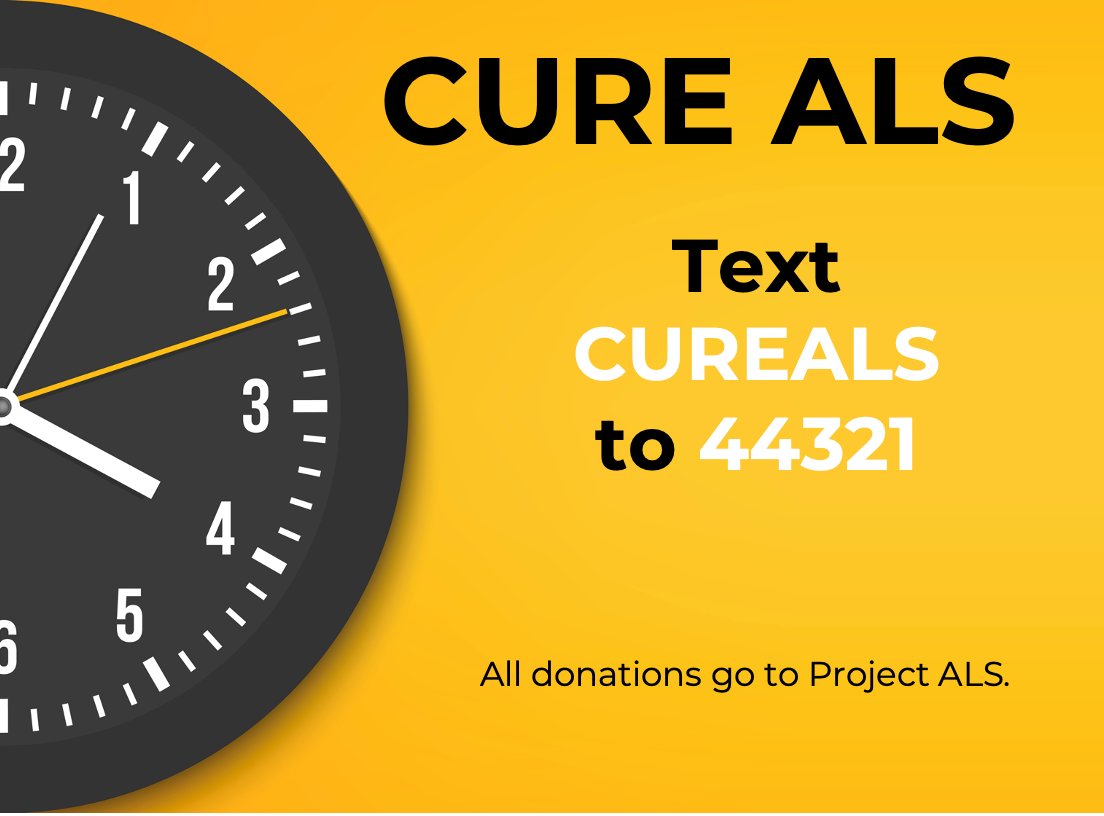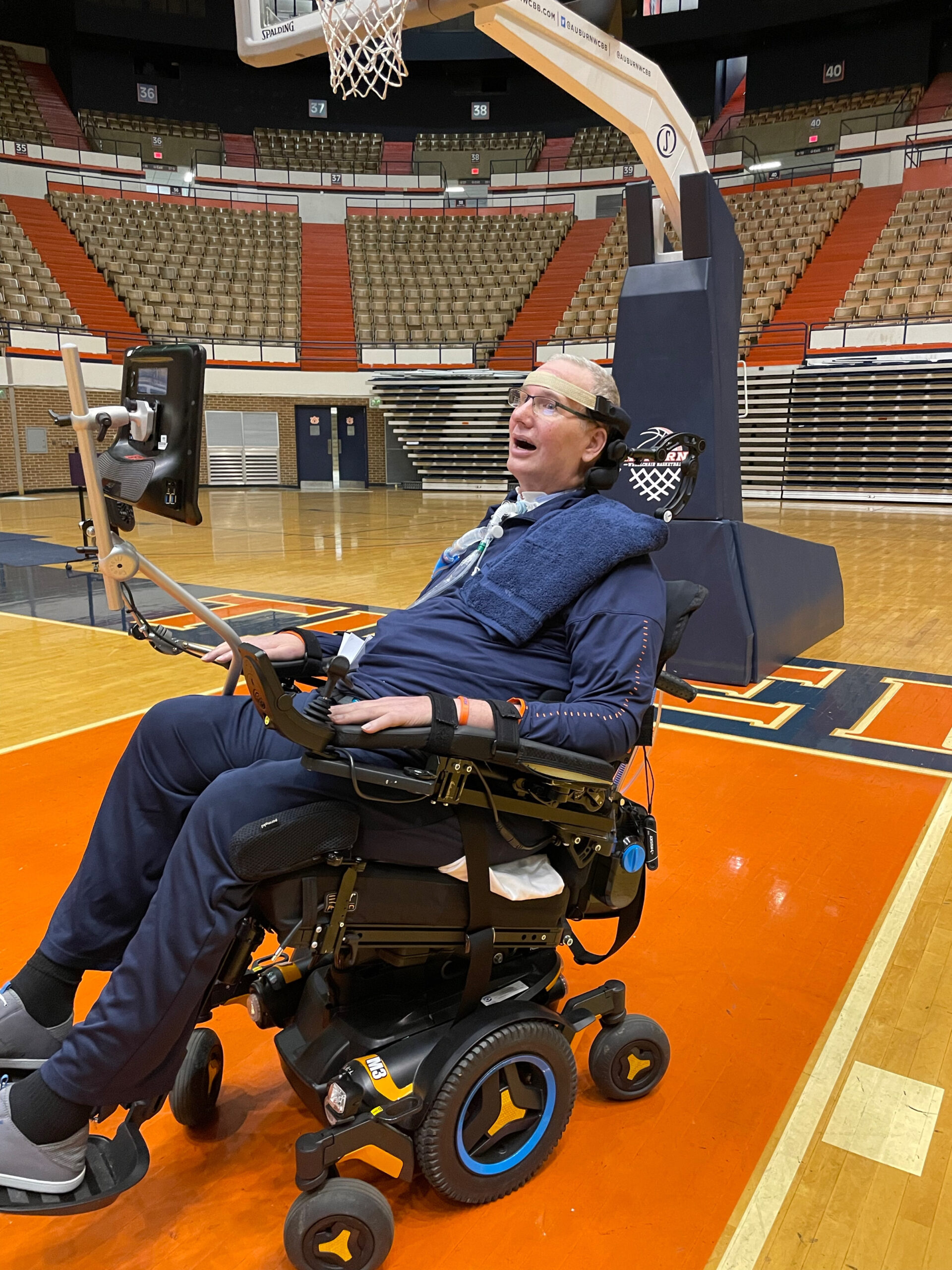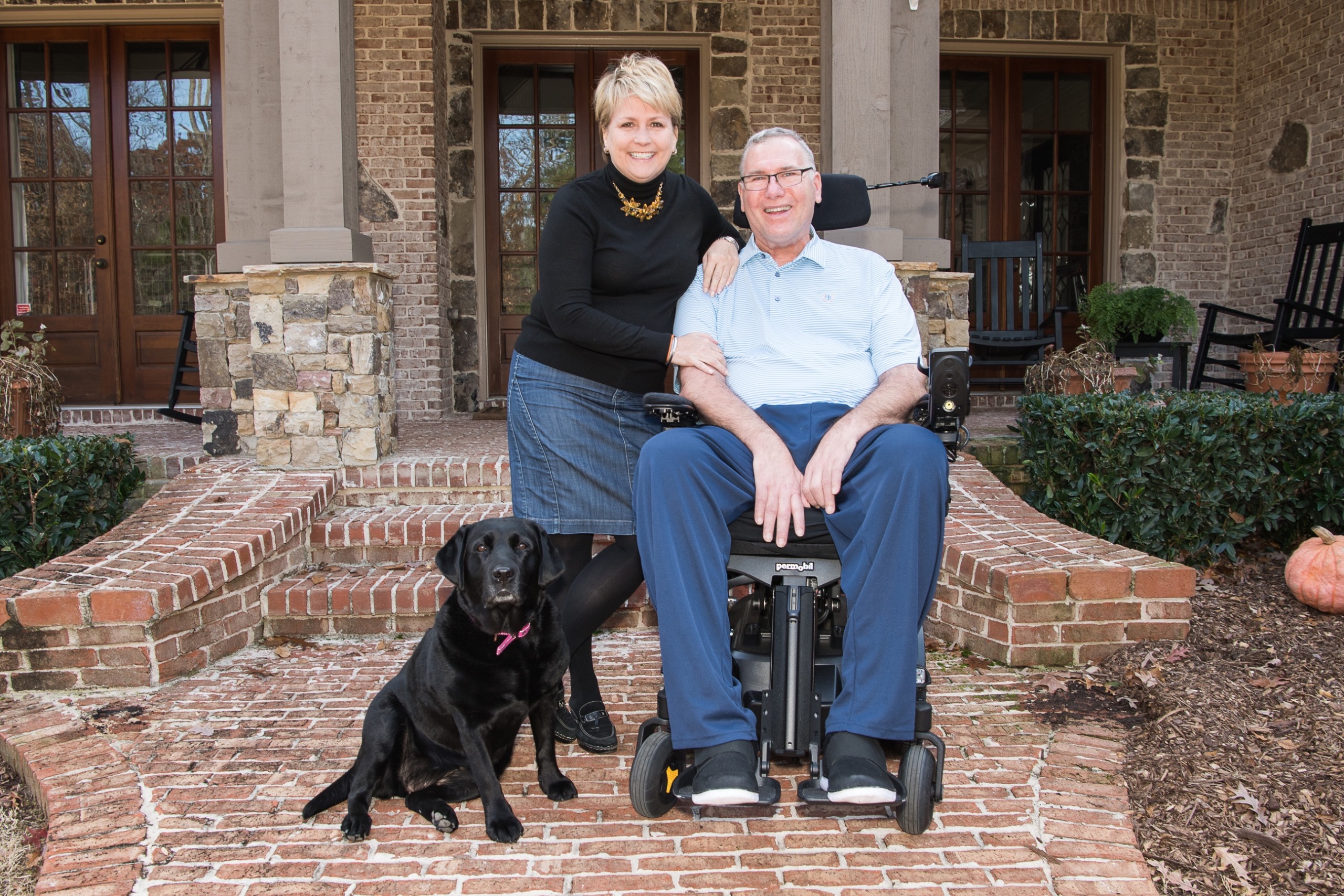Article originally published here by Kate Asbury Larkin.
When Gary Godfrey ’86 got the devastating news that he had ALS, he made a decision. He was not going to fight it—he was going to live with it.
In April 2018, Gary Godfrey ’86 rode 60 miles in Bo Bikes Bama. Now, just two years later, he has lost the ability to ride a bike. Or even to walk, talk, eat, use his arms or legs or breathe on his own. But one thing Gary Godfrey has not lost is his will to live.
It all started with weakness in his arm while shooting free throws, which Godfrey chalked up to age and being out of shape. When it didn’t get any better, he began a series of doctor visits that ended when Jonathan Glass told Gary he had ALS.
Also known as Lou Gehrig’s disease, ALS is a cruel disease with no cure and devasting effects. “Carol and I were prepared for the diagnosis because we had earned medical degrees from the ‘University of Google,’” Gary said. “When it was confirmed, my mind went into problem-solving mode. After all, as an engineer, that is what I did for my clients during my career. Now I was the client and I had a choice; I could spend my energy fighting and battling ALS or I could focus on living with it. I chose the latter. To borrow a famous Michael Jackson quote with one slight alteration, ‘I’m a liver [lover], not a fighter.’”
Gary and his wife Carol ’86, made the decision not to fight ALS, but to live with it. The couple came up with a campaign to live by, “Make today your best day,” and they strive to do that every day.
For this interview, Gary used technology originally invented by Walt Waltoz ’69. In spring 2020, before Gary got his ventilator, stealing his ability to speak, he recorded over 1,600 random phrases. Using only his eyes to type what he wants to say and when he is ready, the computer reads—in Gary’s voice—what he has composed.
“When you are facing a terminal disease, there comes a clarity on how important each day is,” Gary said. “You cannot change yesterday and tomorrow is not guaranteed, so each day is a blessing. I did not understand that when I was caught up in daily activities. I have realized how much joy there is having a positive impact on someone or something each day. Therefore, I try to make each day my best day yet. My best days are when I can make a difference in someone’s life. I know that God has a plan for me. I believe there is a purpose that God wants me to serve. I believe the purpose is to share how important today is and to make a difference in this world we live in.”
Gary was a walk-on basketball player for Auburn during Charles Barkley’s years at Auburn and has received tremendous support from his teammates.
“You may not remember this,” Gary said, “but Charles and I combined for nearly 1,200 points during our careers at Auburn: I had three and Charles had the rest.”
Gary’s eyes lit up and a smile spread across his face. “I had a higher GPA than point total. Seriously, [Coach] Sonny [Smith] should have played me more because we never lost a game I played in.”
His sense of humor is another thing Gary hasn’t lost. He and Carol have been surrounded with an incredible support system that encourages them every day and says in many ways, this diagnosis has been a blessing.
“We have been overwhelmed with the love and support from so many friends and family,” Gary said.
“The Auburn family has really wrapped their arms around us, from day one. From my fraternity brothers, to our engineering friends, to our tailgate team, to the Auburn basketball team, there isn’t a day that goes by that doesn’t include some War Eagle support and love. One of the most special days was to be at the Final Four game in Minneapolis and to see the coaches all wearing ALS pins.”
ALS requires significant care and money to treat. It often falls on the shoulders of family members.
Both Gary and Carol are graduates of the Samuel Ginn College of Engineering, so their problem-solving skills have helped them navigate the challenges ALS presents.
“The selfless and unconditional love that Carol gives me is truly a gift,” Gary said. “Throughout this journey, she has been my rock! Everything—I mean everything—falls on Carol’s shoulders. She has selflessly given up so much to take care of me. In addition to Carol, there is a village of family, friends, and caretakers that help me each day and for that, I am incredibly grateful!”


